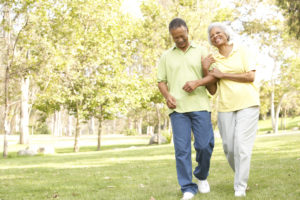Family Caregiver Concerns During the COVID-19 Pandemic

Caregivers have additional concerns on top of all other Coronavirus Challenges
Now that most of us have been practicing social distancing for over a month, it’s becoming apparent that our experience depends in part on our life circumstances. People who still must work around others — healthcare workers, grocery workers, mail carriers, bus drivers — are all heroes, and let’s not forget to honor and thank them! Parents are scrambling to telecommute while ensuring their children are keeping up with online lessons. And people who also are providing care support for elderly loved ones have an extra set of concerns.
If your loved one lives with you. By now, you are probably very familiar with the steps to take to protect yourself and your loved one against the virus. Seniors are at the highest risk of serious illness and death from the novel coronavirus, and the best way to avoid that is to keep them away from exposure. The recommended degree of social distancing can be challenging — no visits from the grandkids, no trips to the senior center, and canceled healthcare appointments. Remind your loved one to wash their hands often and correctly, and to wear a mask in situations where it might be hard to distance. The same goes for you! Carelessness could mean that you could bring the virus home. (If you need a refresher, here are the latest recommendations from the CDC.) Yes, this is going to be a lot of “togetherness,” so maintain your social lifelines and take some “me time” even as you’re quarantined.
If your loved one lives in a senior living community. Older adults are more vulnerable to the effects of COVID-19, so skilled nursing facilities, assisted living communities and other supported senior living organizations are taking strict precautions to prevent the spread of the virus. Most likely, at this time you will not be allowed to visit your loved one. This can feel heartbreaking, especially if you were one of the many devoted family members who regularly visit to support their loved one’s care! But the facility will have ways to keep you connected. Ask about video visits. Check out your loved one’s community Facebook page, as well — many have become quite active these days. Call frequently, and urge friends and family to reach out, as well. It’s nice to know that many senior living residents report having more contact with more family members than usual these days! Of course, letter writing never goes out of style.
If your loved one lives alone, and far away. You might be tempted to hop on a plane to help … but of course, that isn’t advised now. Some of the suggestions for senior living residents apply to home-dwelling seniors, as well. Call, email or video chat with your loved one frequently. Remind them how important it is for them to stay home. Many of your loved one’s usual supports will be unavailable at this time, so you may have to remotely arrange for substitutes. Contact your loved one’s local senior services agency. An aging life care professional (geriatric care manager) can also help; these professionals are finding innovative ways to provide service at this time.
If your loved one is living with dementia. The life changes brought on by the pandemic can be disorienting for anyone. For people with Alzheimer’s disease or a related disorder, this time is especially difficult. As much as you can, maintain your loved one’s routine. Experts from Rutgers University offer this advice: “If you observe more agitation, do something with them that is familiar. Play music, look through photo albums, play a game. Let them know that they are safe and you are there to help. A soothing touch, brushing their hair or a hug may bring calm and reduce agitation.” (Find more advice here.)
If your loved one, or you, are feeling anxiety and depression. Be aware of the very common emotional responses you and your loved one are likely to be experiencing. In a widely shared article, grief expert David Kessler told the Harvard Business Review that we are all dealing with tremendous losses: “The loss of normalcy; the fear of economic toll; the loss of connection. This is hitting us and we’re grieving.” Acknowledging our feelings is the first step to coping with them. What else can help? We can exercise, eat well, spend some time outdoors for some natural light, and avoid a steady diet of news. If depression and anxiety worsen, contact your or your loved one’s healthcare provider.
If you’re hearing ageist comments. This is one more unfortunate bit of fallout from the pandemic. Some news media outlets have been making hateful, demeaning statements about older adults and these thoughts have been magnified in social media. (Calling the virus the “boomer remover” and speaking as if seniors are expendable are just a couple of examples.) If you see this, say something. Your loved one might internalize these messages, and younger people are also damaged by a diminished view of their own future aging. Take this time to express your appreciation and gratitude to your loved one.
Our team is focused on ensuring quality care for older adults and reducing family stress.
If you or someone you know is interested in scheduling a consult, please call: 713-624-4288 or visit www.elderadvisorygroup.com and click on “Contact Us”.

